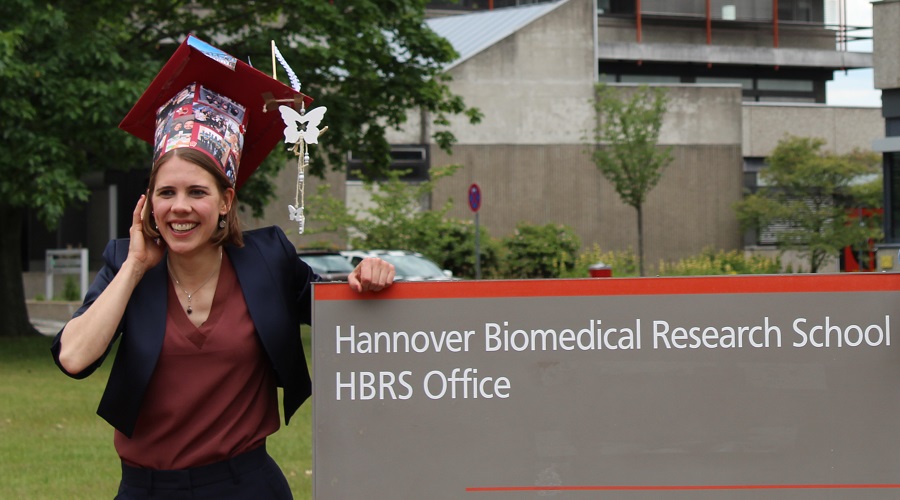
Dorit completes a successful PhD defense amid social distancing
The COVID-19 pandemic has had far-reaching global consequences, and we are all trying to cope with the situation as best we can. Amid all this, Dr. rer. nat. Dorit Schneider graduated from the HBRS Molecular Medicine PhD program with honours (magna cum laude). Her thesis is titled “Deciphering the oncogenic network of PRC2 loss guided leukemogenesis”. Congratulations on this great work!
Acute myeloid leukemia (AML) develops when hematopoietic stem and progenitor cells acquire mutations that enhance self-renewal, block differentiation, and promote proliferation. This is generally thought to be a multi-hit process, involving mutations in several genes which cooperate to achieve the aforementioned cellular properties and drive leukemogenesis. The polycomb repressive complex 2 (PRC2) and its catalytic subunit EZH2 represent a crucial hub of epigenetic regulation that is frequently lost in adult AMLs, myelodysplastic syndromes, Down syndrome myeloid leukemias, and juvenile myelomonocytic leukemias. The central aim of Dorit’s PhD was the delineation of cooperative mutational networks surrounding EZH2 loss-driven AML, which she accomplished using advanced CRISPR-Cas9 based approaches.
In a multiplexed CRISPR-Cas9 cooperation screen of Ezh2 and five other genes, Dorit found the joint loss of Ezh2, Bcor, and Runx1 to have a strong synergistic effect on de novo leukemogenesis. Global epigenetic and gene expression profiling revealed an upregulation of oncofetal gene signatures upon Ezh2 loss, and ectopic expression of several of the top candidates mimicked the Ezh2 loss phenotype. Importantly, in a direct comparison between fetal and adult cells, Dorit showed that Ezh2 loss specifically enhances leukemogenesis in cells of adult origin – demonstrating the developmental context-specific effect of Ezh2 loss and presenting a novel window for targeted therapies in EZH2-loss adult AML.
Dorit is currently starting a postdoctoral position in the Pediatric Research Centre at the Hannover Medical School, where she will leverage her experience in functional genomics to study rare childhood genetic disorders. We wish her all the best!